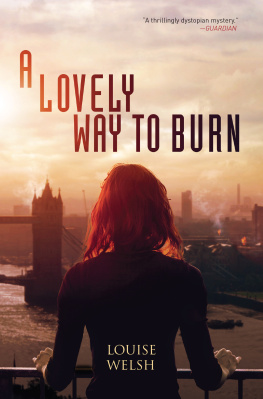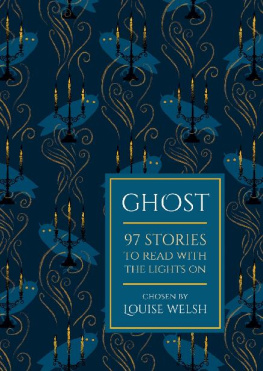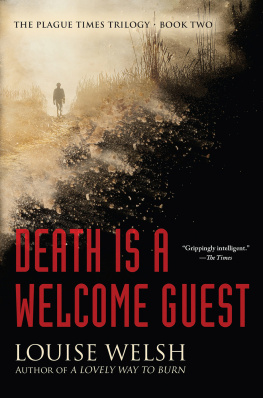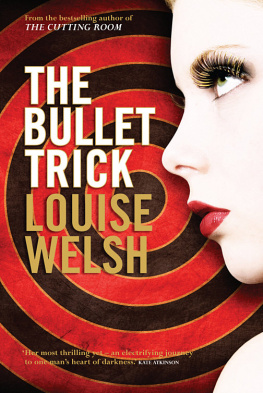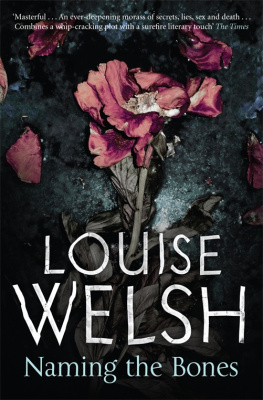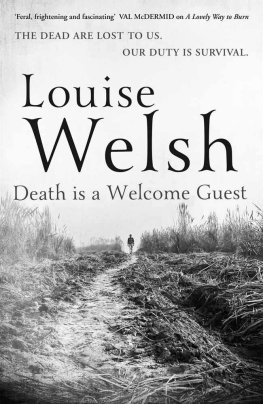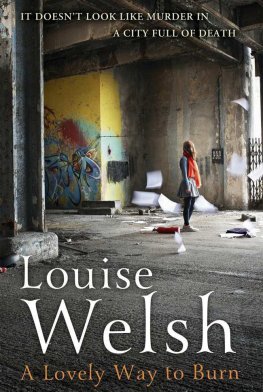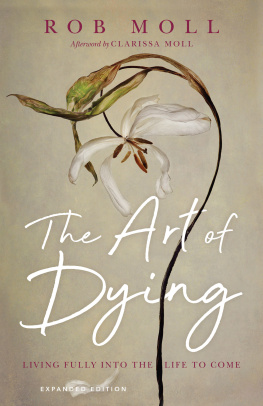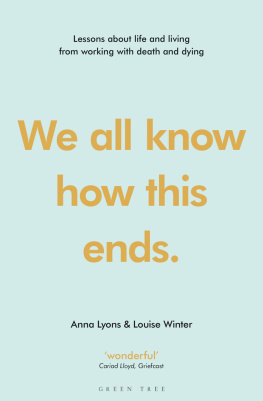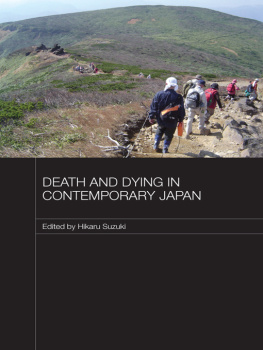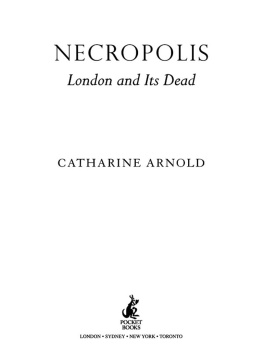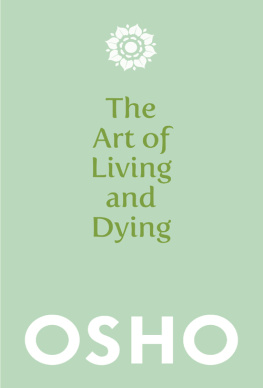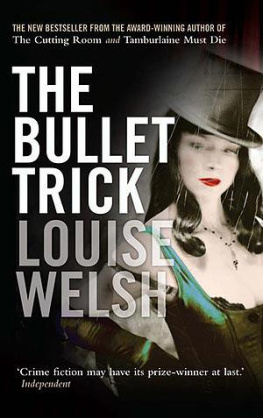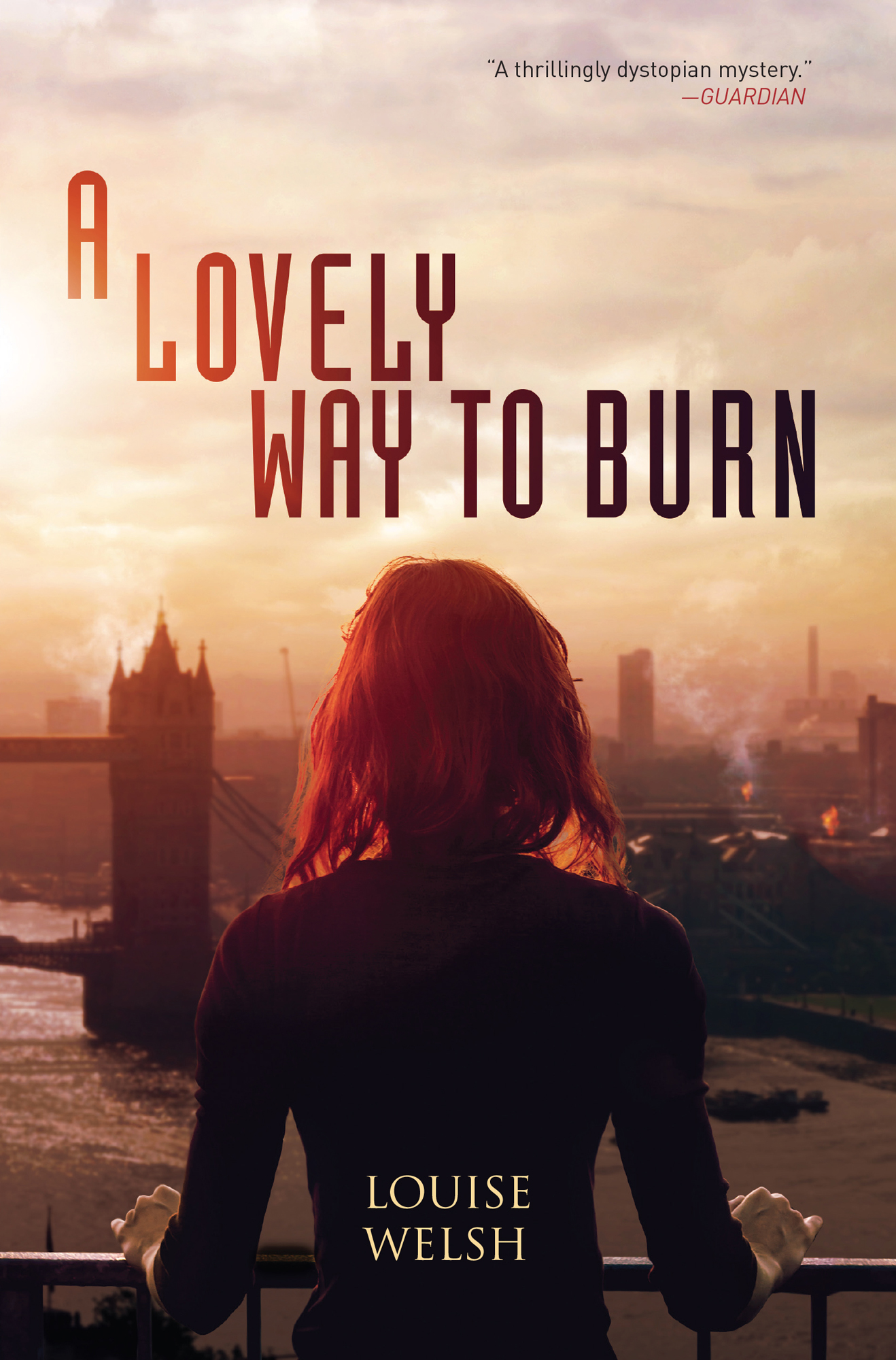
Louise Welsh
Louise Welsh is the author of six highly acclaimed novels, including The Cutting Room and The Girl on the Stairs. She has been the recipient of several awards. A Lovely Way to Burn is the first novel in the Plague Times trilogy.
Praise for A Lovely Way to Burn
A terrifying journey into the possible... A Lovely Way to Burn gripped and chilled me in equal measure. Val McDermid
I was with Louise Welshs gutsy gripping heroine Stevie Flint every terrifying step of the way. Kirsty Wark
I read it in two sittings, pausing only to sleep and dream about it. Gripping, perfectly paced and beautifully written. Erin Kelly
This intelligent thriller creates an alarmingly convincing picture of London on the brink of disintegration. Andrew Taylor, The Spectator
Welsh plays brilliantly on our worst fears, and the pace never lets up. Seriously scary. The Times
A thrillingly dystopian mystery. Guardian
This is a novel rich in the kind of iridescent word painting that has long been Welshs speciality... readers will be impatient for the second in the trilogy. Independent
The London of the novel at once recalls sci-fi dystopia, Dantes Inferno and accounts of the 1665 great plague. Sunday Times
Welsh writes snappily and with filmic precision. Sunday Business Post
The relentlessly taut suspense of A Lovely Way to Burn still lingers on in my psyche. Stylist
Utterly compelling and scarily realistic... Great if you like tense thrillersand as its the first in a series called the Plague Times trilogy, it bodes well for the next two. Heat
A L OVELY W AY TO B URN
Also by Louise Welsh
The Cutting Room
The Bullet Trick
Naming the Bones
Tamburlaine Must Die
The Girl on the Stairs
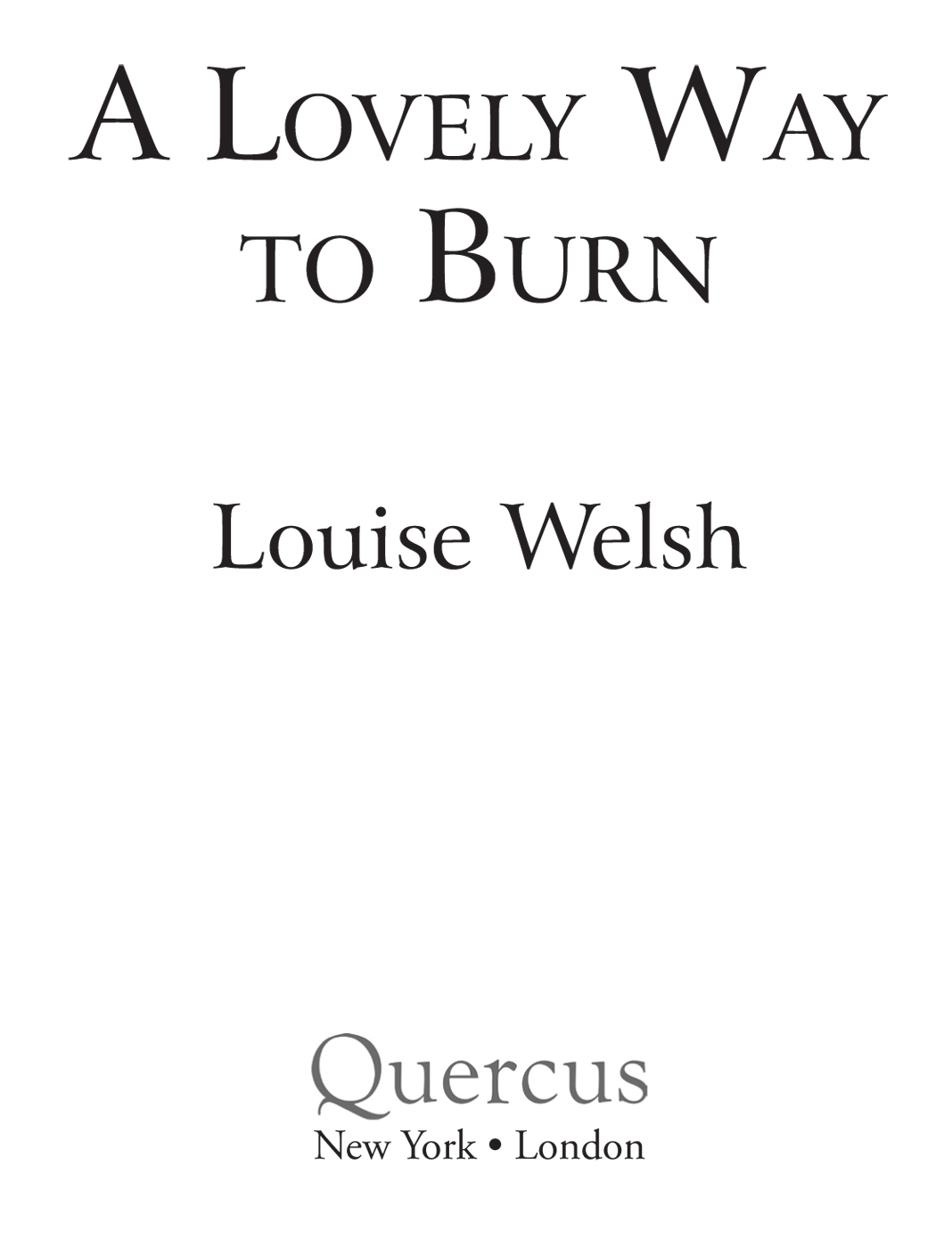

New York London
2015 by Louise Welsh
First published in the United States by Quercus in 2016
Design by More Visual Ltd
All rights reserved. No part of this book may be reproduced in any form or by any electronic or mechanical means, including information storage and retrieval systems, without permission in writing from the publisher, except by reviewers, who may quote brief passages in a review. Scanning, uploading, and electronic distribution of this book or the facilitation of the same without the permission of the publisher is prohibited.
Please purchase only authorized electronic editions, and do not participate in or encourage electronic piracy of copyrighted materials. Your support of the authors rights is appreciated.
Any member of educational institutions wishing to photocopy part or all of the work for classroom use or anthology should send inquiries to .
e-ISBN: 978-1-68144-461-1
Distributed in the United States and Canada by
Hachette Book Group
1290 Avenue of the Americas
New York, NY 10104
This book is a work of fiction. Names, characters, institutions, places, and events are either the product of the authors imagination or are used fictitiously. Any resemblance to actual personsliving or deadevents, or locales is entirely coincidental.
www.quercus.com
For Zo Wicomb
... love is strong as death;
jealousy is cruel as the grave:
the coals thereof are coals of fire,
which hath a most vehement flame.
The Song of Solomon
L ondon witnessed three shootings that summer, by men who were part of the Establishment. The first was the Right Honorable Terry Blackwell, Tory MP for Hove who, instead of going to his constituency as planned, sat in a deck chair on the balcony of his Thames-side apartment one sweltering Saturday in June and shot dead six tourists.
The first five were neatly dispatched, with shots to their heads. Terry Blackwell had been a sniper in his army days, and tourists, ambling by the river in bright summer clothes, were easy targets. The sixth was running for cover when Blackwell hit her in her right knee. He waited until the girl, Marina Salzirnisa from Latvia (visiting the city for a language class that her father hoped would improve her English), had almost dragged herself to the safety of a caf, and then shot her four more times, wounding her in her left knee, both thighs, and finishing with a shot to the spine that wasnt guaranteed to kill her, but did.
After Marina, the MP had lost his touch, or perhaps people had simply succeeded in running for their lives, because although Terry Blackwell kept the streets and buildings in range pinned down for the rest of the day, he didnt kill, or even wound, anyone else. Around six oclock he botched his own shot to the head, lingering on alone, on the floor of his apartment, where the Rapid Response Team eventually found him. Police negotiators had located Blackwells ex-wife, Cynthia, and later there was speculation in the press that it had been her voice on the answering machine, telling Blackwell she still loved him, that had prompted the MPs coup de grce.
Toward the end of June, John Gillespie, a hedge-fund manager for the Royal Bank of Scotland, let rip in an Underground car on the Circle line with a gun he had concealed in his briefcase. Gillespie was known for his canny ability for risk assessment and had chosen a not-quite-full car between rush hours. He managed to kill all fifteen occupants before the train reached its next station. Gillespie waited for the doors to open, and the oncoming passengers to see the carnage, before turning the gun on himself. Witness statements mentioned the bankers smart suit and neatly knotted tie, the professional smile he gave as he pulled the trigger.
The following week the Reverend Matthew Sheppard, vicar of St. Albans parish church in Ealing, mounted the altar, took a shotgun from beneath his cassock and attempted to gun down his congregation. St. Albans worshippers were aging, and had it been a normal Sunday, the Reverend Sheppard might have succeeded in sending them all to what they presumably believed was a better place. But it was the week of Aimee Albrights christening and the church was packed almost to capacity. Aimees Uncle Paul, who had never been good enough to turn professional but had captained his local cricket team for the past eight years, bowled his hymnbook full square at Sheppard and knocked the gun from his grasp. Aimees father was wounded in the shoulder, but he and two of his brothers managed to wrestle the vicar who, now that he was unarmed, seemed dazed, to the floor. The Reverend Sheppard had remained dazed to the point of catatonia, right up to the moment when he succeeded in hanging himself with a sheet in the prison cell where he was on suicide watch.
On the surface, the shootings were nothing to do with what happened later, but they stuck in Stevie Flints mind. Their details returned to her during the months ahead and she would begin to think of them as a portent of what was to come, a sign that the city was beginning to turn on itself.
S tevie Flint had lived in London for seven years. She no longer had the soundtrack to the movie of her life playing in her head, but had only just turned thirty and could still appreciate the buzz of the city as it headed toward night. She walked out of Tottenham Court Road Underground station, noticing a faintly sulfurous tinge to the air. Stevie shaded her eyes with Jackie O sunglasses, suddenly remembering Jasmines, the only smart dress shop in her hometown, its window screened with yellow cellophane to protect gowns from a rarely existent sun. London had a hint of yellow to it today, she decided, a septic glare. She set out in what she hoped was the right direction for the private members club Simon had suggested. Her new sandals were too high for a long hike but she had traced her route earlier on Google Maps and been reassured that she could walk the distance without too much damage to her feet.
Next page
